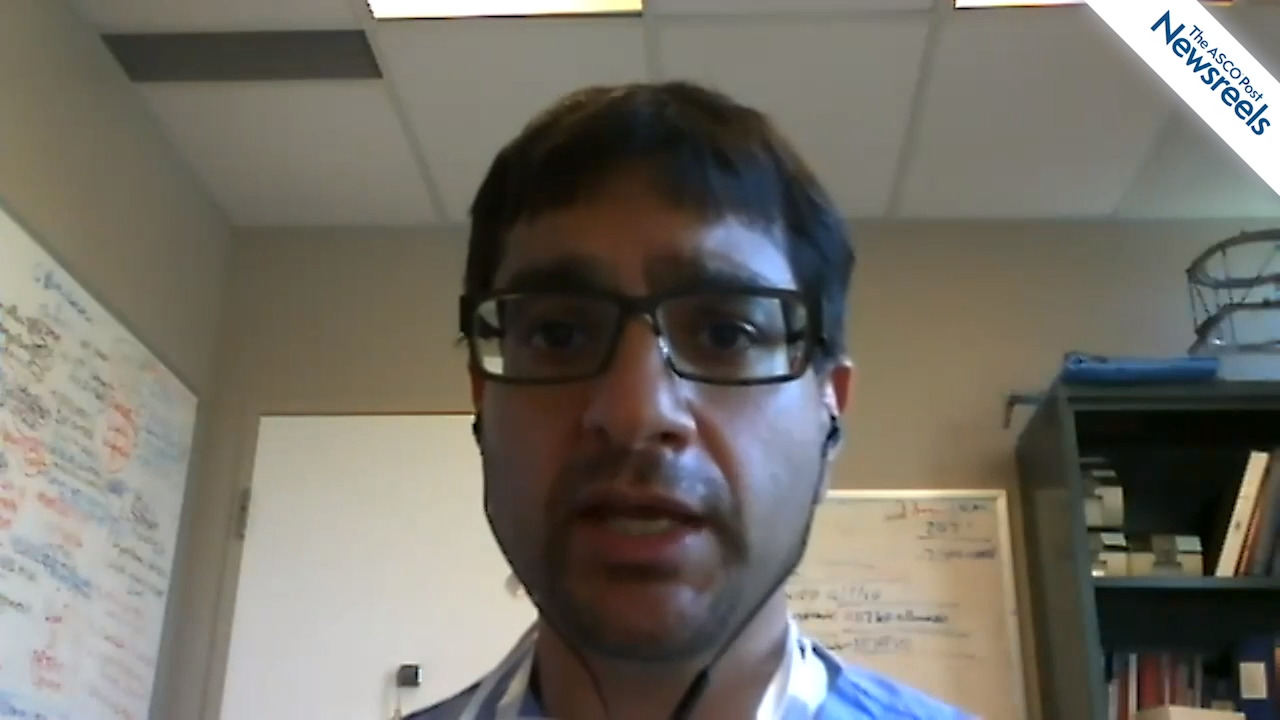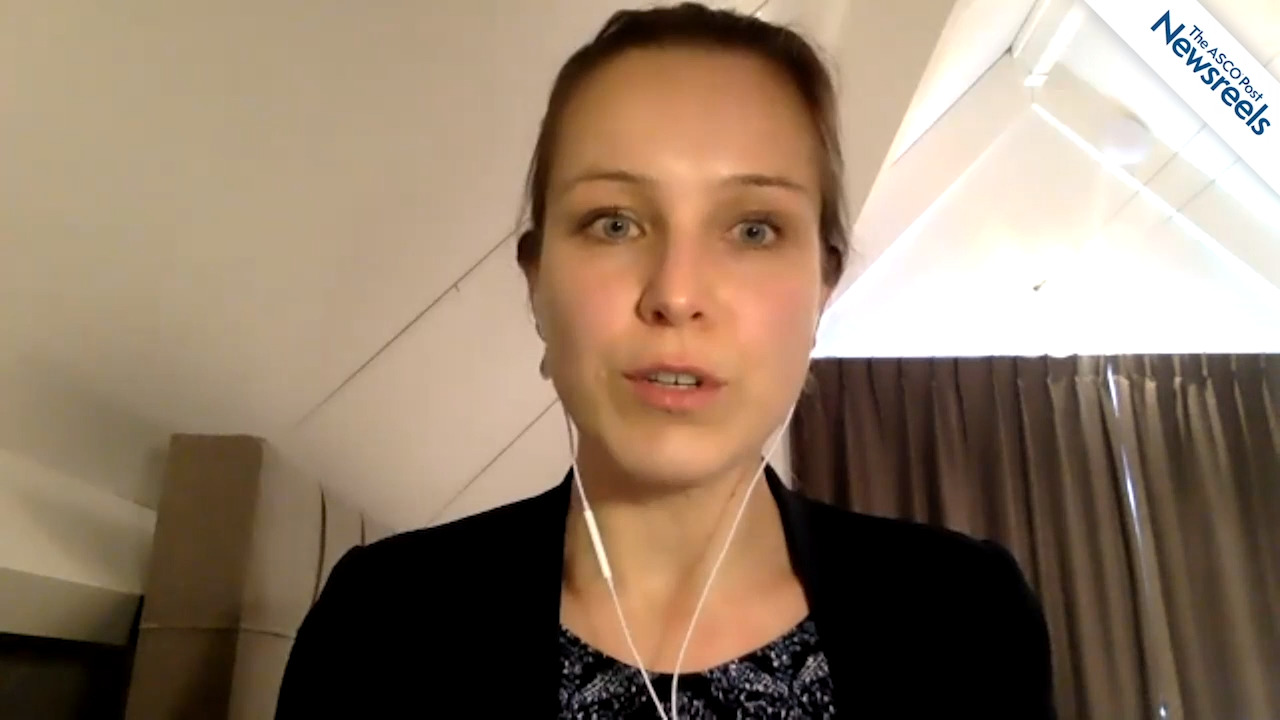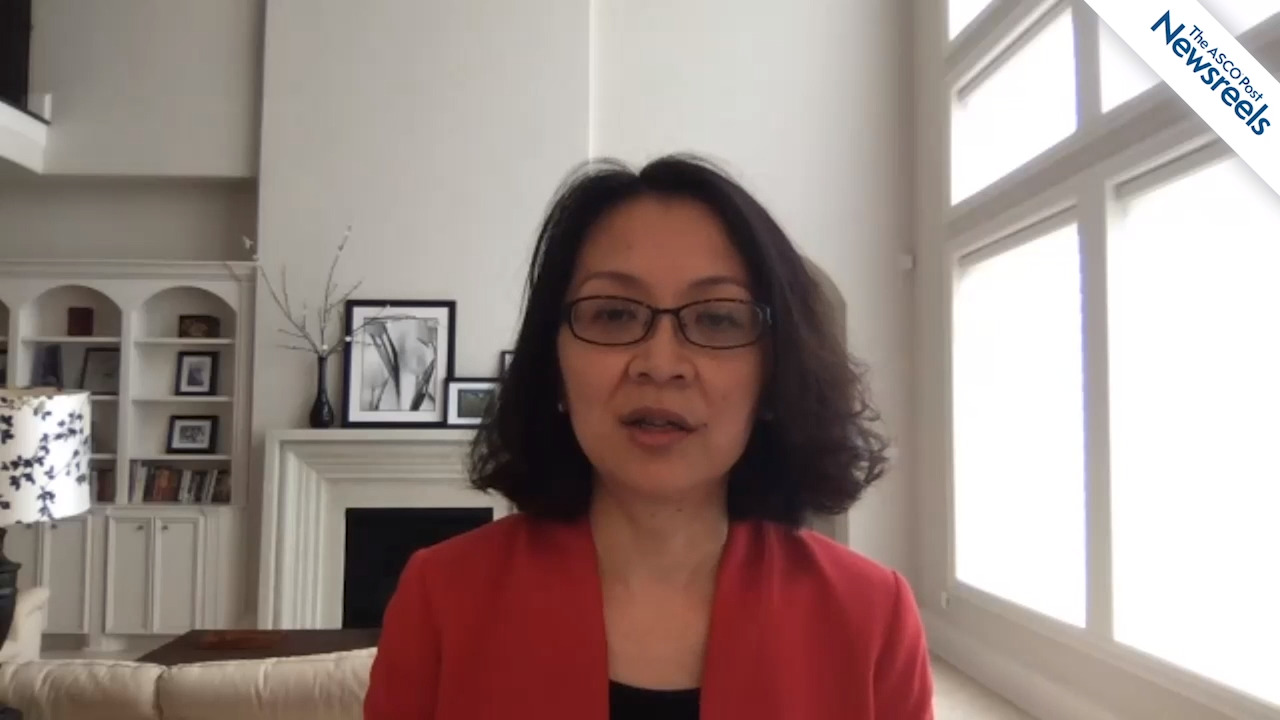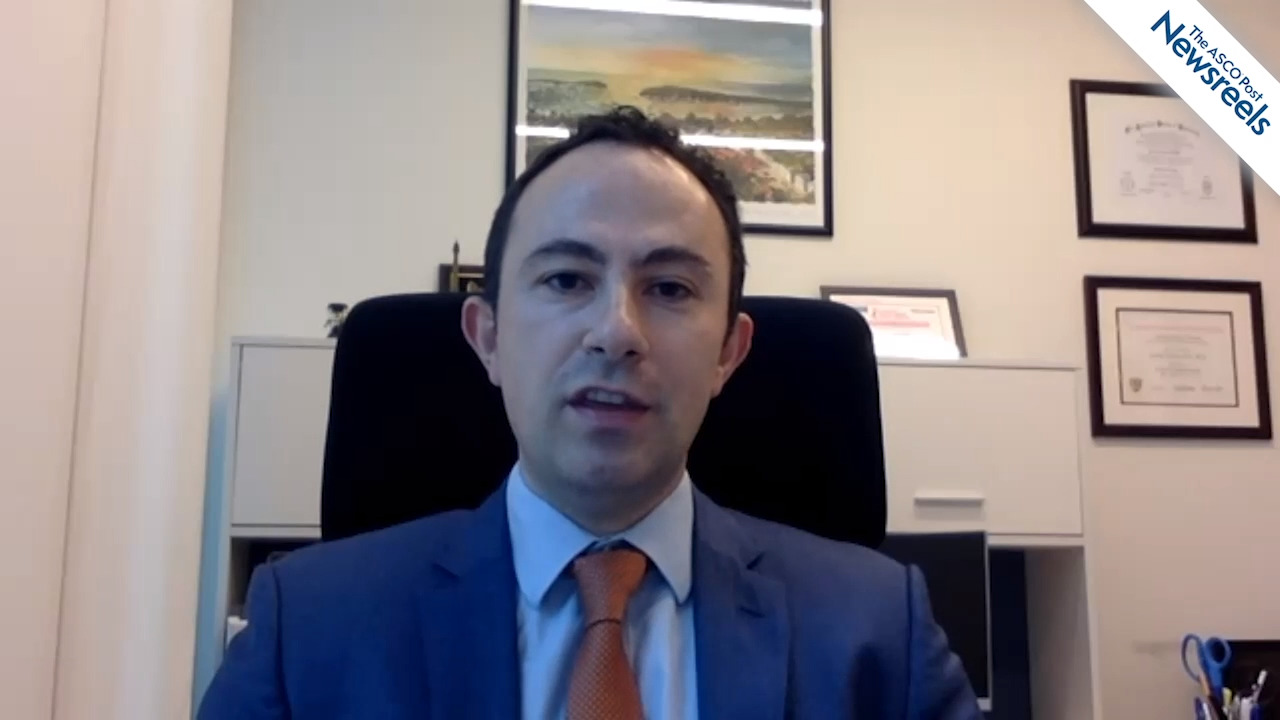Daniel E. Spratt, MD, on Prostate Cancer: Relugolix vs Leuprolide
2020 ASTRO Annual Meeting
Daniel E. Spratt, MD, of the University of Michigan Rogel Cancer Center, discusses phase III results of the HERO trial, which suggested benefits of the oral medication relugolix: a substantially faster time to castration with longer duration, fewer cardiac events, and a faster return to normal testosterone levels compared with leuroplide (Abstract 35).
The ASCO Post Staff
Arjun Sahgal, MD, of the Sunnybrook Health Sciences Centre, discusses results of the first phase III trial to suggest that dose escalation with stereotactic body radiotherapy may be superior to conventional palliative radiotherapy in improving pain outcomes for patients with spinal bone metastases (Abstract LBA2).
The ASCO Post Staff
Jeff M. Michalski, MD, MBA, of the Washington University School of Medicine, discusses a Children’s Oncology Group study that confirmed data previously reported: Involved-field radiotherapy is noninferior to posterior fossa radiotherapy in patients with average risk-medulloblastoma. However, low-dose craniospinal irradiation is not as effective as standard-dose irradiation in younger children (Abstract 1).
The ASCO Post Staff
Linda G.W. Kerkmeijer, MD, PhD, of the University Medical Center Utrecht and Radboud University Medical Center, discusses results from the phase III FLAME trial, which explored the question of whether biochemical disease–free survival can be improved by adding a focal boost to the intraprostatic lesion in whole-gland external-beam radiotherapy for patients with intermediate- and high-risk prostate cancers (Abstract 126).
The ASCO Post Staff
Jing Li, MD, PhD, of The University of Texas MD Anderson Cancer Center, discusses phase III results showing the use of stereotactic radiosurgery in patients with 4 to 15 brain metastases, compared with whole-brain radiotherapy, may better preserve cognitive function and minimize the interruption of systemic therapy without compromising overall survival (Abstract 41).
The ASCO Post Staff
Youssef Zeidan, MD, PhD, of the American University of Beirut Medical Center, discusses study findings showing that breast-conserving surgery, whole-breast irradiation, and trastuzumab offer effective local tumor control for patients with HER2-positive breast cancer. An additional radiation boost does not seem to further improve outcomes (Abstract 52).





